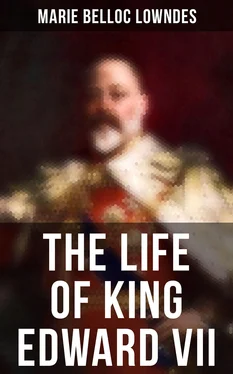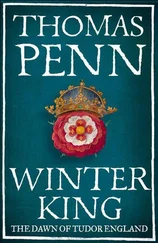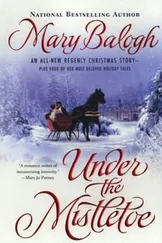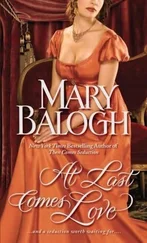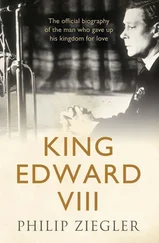“My duties as Representative of the Queen cease this day, but in a private capacity I am about to visit before I return home that remarkable land which claims with us a common ancestry, and in whose extraordinary progress every Englishman feels a common interest.”
Great as had been the enthusiasm in Canada, it may be said to have been nothing to the furore of excitement produced in America by the Prince of Wales’s visit. At Detroit the crowds were so dense that the Royal party could not get to their hotel through the main streets, and had to be smuggled in at a side entrance. The whole city was illuminated; every craft on the river had hung out lamps; and, as one individual aptly put it, “there could not have been greater curiosity to see him if the distinguished visitor had been George Washington come to life again.”
Over 50,000 people came out to meet His Royal Highness at Chicago, then a village of unfinished streets, but there, for the first time, the Prince broke down from sheer fatigue, and the Duke of Newcastle decided that it would be better to break the trip from Chicago to St. Louis by stopping at a quiet village, famed even then for the good sport to be obtained in its neighbourhood. It was therefore arranged that His Royal Highness should have a day’s shooting at Dwight’s Station, and fourteen brace of quails and four rabbits fell to the Prince’s gun.
A rather absurd incident marred the complete pleasure of the day. As the Royal party approached a farm-house an unmistakably British settler appeared at the door and invited every one excepting the Duke of Newcastle to enter. “Not you, Newcastle,” he shouted; “I have been a tenant of yours, and have sworn that you shall never set a foot on my land.” Accordingly the party passed on, and the farmer, though revenged on his old landlord, had to forego the honour of entertaining Royalty under his roof.
But, notwithstanding this awkward incident, the King seems to have thoroughly enjoyed his little respite from official functions. At one moment, when he was out on the prairie, he and his companions desired to smoke, but nobody had a light. At last a single match was found, but no one volunteered to strike it. Lots were drawn with blades of the prairie grass, and the King drew the shortest blade. The others held their coats and hats round him whilst he lighted the match, and he once said that he never felt so nervous before or since.
On 30th October “Lord Renfrew” reached Washington, and Lord Lyons, the British Minister, introduced him to President James Buchanan, and Miss Harriet Lane, the latter’s niece and housekeeper. The Prince stayed at the White House, and President Buchanan, though he could not spare his Royal guest a certain number of levées and receptions, did his best to make his visit to the official centre of the American Republic pleasant. During these five days there occurred a most interesting event—the visit of His Royal Highness to Mount Vernon and the tomb of Washington. A representative of the Times gave the following eloquent account of the scene:—
“Before this humble tomb the Prince, the President, and all the party stood uncovered. It is easy moralising on this visit, for there is something grandly suggestive of historical retribution in the reverential awe of the Prince of Wales, the great-grandson of George III., standing bareheaded at the foot of the coffin of Washington. For a few moments the party stood mute and motionless, and the Prince then proceeded to plant a chestnut by the side of the tomb. It seemed, when the Royal youth closed in the earth around the little germ, that he was burying the last faint trace of discord between us and our great brethren in the West.”
Doubtless the Prince enjoyed these new experiences a good deal more than did his guides, philosophers, and friends. Political feeling ran high, and the pro-slavery leaders were very anxious to influence public sentiment in Great Britain. They formed the project of taking the Prince of Wales through the South to see slavery under its pleasantest aspect as a paternal institution. After a good deal of discussion between the Duke of Newcastle and Lord Lyons, it was felt better to accept the invitation of some representative Southerners, and accordingly the Prince went a short tour to Richmond; but it may be added that a great slave sale which had been widely advertised was postponed so as not to offend British susceptibilities. The Prince does not seem to have been at all impressed by the slave cities, and he flatly refused to leave his carriage to visit the negro quarters at Haxhall’s plantation, and so he returned to Washington, having shown a good deal more common sense than had those about him.
The day that the Prince left Washington for Richmond, President Buchanan wrote a charming letter to the Queen, in which he said, speaking of his guest: “In our domestic circle he has won all hearts. His free and ingenuous intercourse with myself evinced both a kind heart and a good understanding.”
From Washington the Prince proceeded to Philadelphia, and there, for the first time, His Royal Highness heard Adelina Patti. He was so greatly charmed with her marvellous voice and winning personality, that he begged that she might be presented to him.
The Prince’s feelings must have been strangely mixed when he stood in Independence Hall, but he does not appear to have revealed them by making any remark, and after staying a few days in Philadelphia he started for New York, where he received a splendid welcome from Father Knickerbocker, being met at the station by the Mayor, and driven through Broadway to the Fifth Avenue Hotel. Half a million spectators saw him arrive, and so great was the anxiety to see Queen Victoria’s eldest son at close quarters, that there was no structure in New York large enough to contain those who thought that they had—and who no doubt had—a right to meet the Prince of Wales at a social function.
At last a building was found capable of containing 6000 people; but, looking to the question of “crinolines and comfort,” it was reluctantly decided that not more than 3000 cards of invitation, admitting to the ball and to the supper to follow, should be sent out. Fortunately most of the 3000 guests were important people, and therefore too old to dance. They represented, in both senses of the word, the solid element in New York society, for, as they crowded round the Prince, the floor gave way, and it is a wonder that no serious accident took place. This splendid entertainment, which took place in the old Academy of Music, is still remembered by many elderly Americans. The Prince showed his tact and good taste by frequently changing his partner. For the supper, a special service of china and glass had been manufactured, the Prince’s motto, Ich Dien , being emblazoned on every piece.
During the five days that the Prince remained in New York, he was the guest of the Mayor and of the Corporation. He seems to have most enjoyed a parade of the Volunteer Fire Department in his honour. There were 6000 firemen in uniform, and all, save those in charge of the ropes and tillers, bore torches. It was a magnificent spectacle, and the Prince, as he looked at the brilliant display in Madison Square, cried repeatedly, “This is for me, this is all for me!” with unaffected glee.
From New York the Prince went on to Albany and Boston, and at the latter place Longfellow, Oliver Wendell Holmes, Emerson, and a number of other notable Americans were presented to him. He visited Harvard College, spent an hour at Mount Auburn, where he planted two trees, and drove out to Bunker’s Hill.
Portland was the last place visited by the Prince in the United States, and on 20th October the Royal party set sail for home on board the Hero , which was escorted by the Ariadne , the Nile , and the Styx . The voyage home was not as uneventful as had been the voyage out. So anxious were they at Court about the fate of the Hero , that two ships of war were sent in search of the frigate and her escort. At last, to every one’s great relief, the Hero was sighted, and it was ascertained that a sudden storm had driven the boat back from the British coast, and the Royal party had been reduced to salt fare, with only a week’s provisions in store.
Читать дальше
